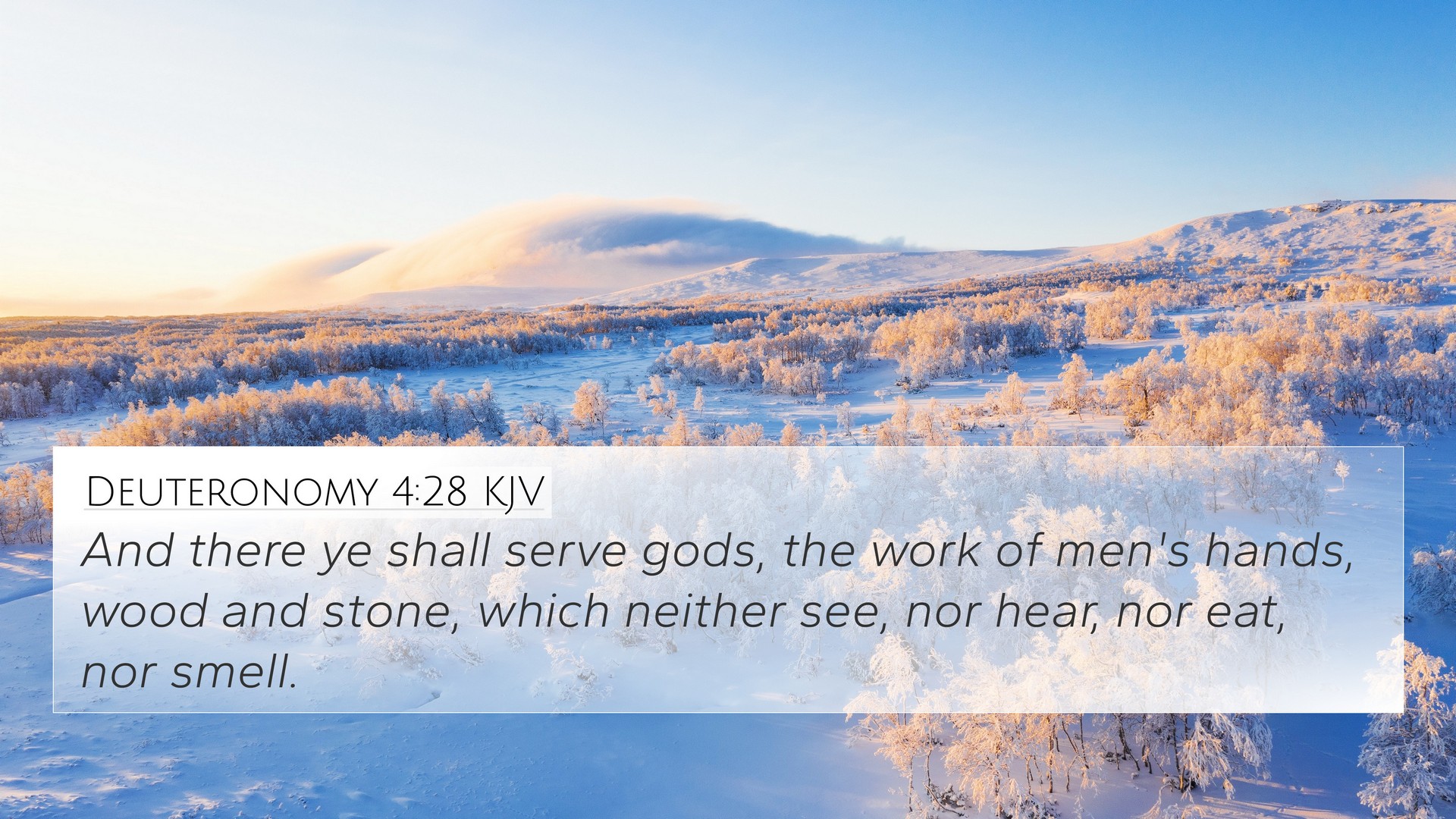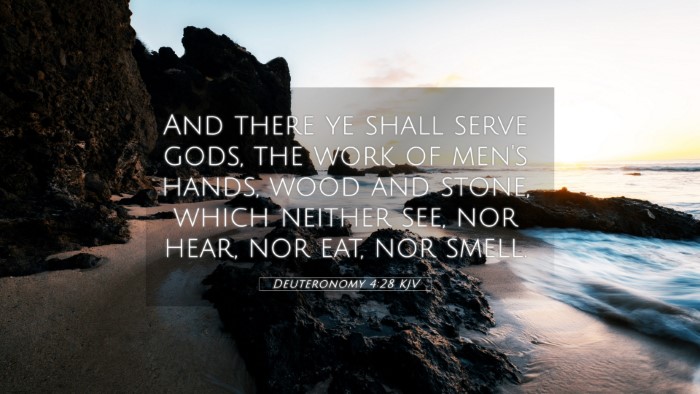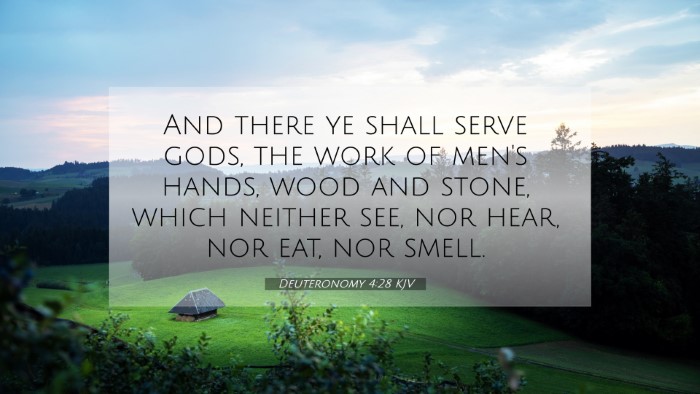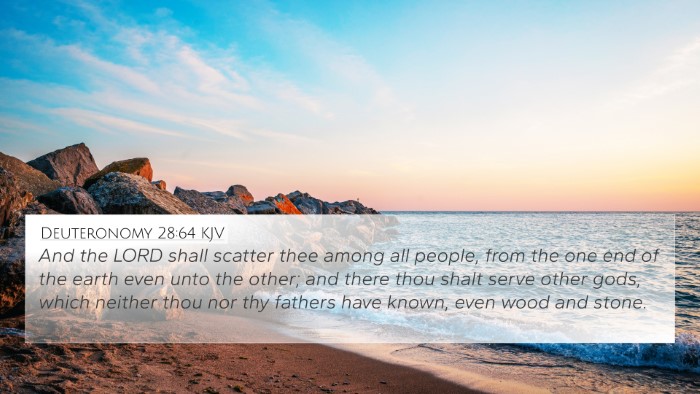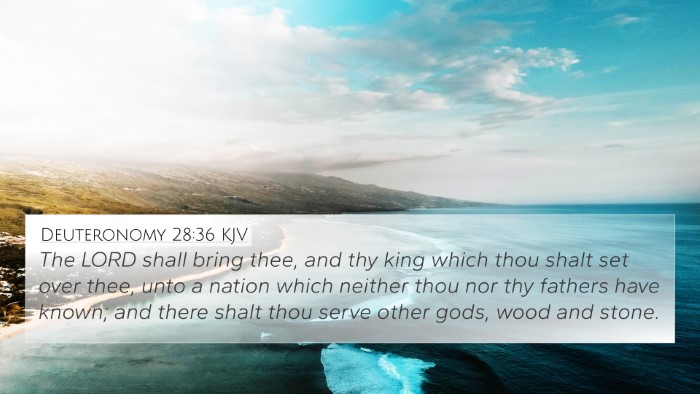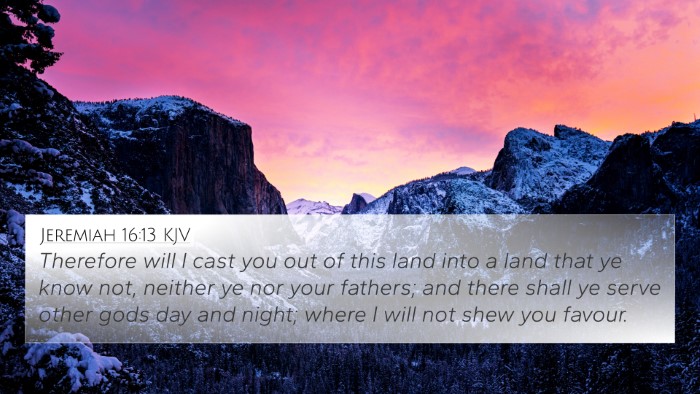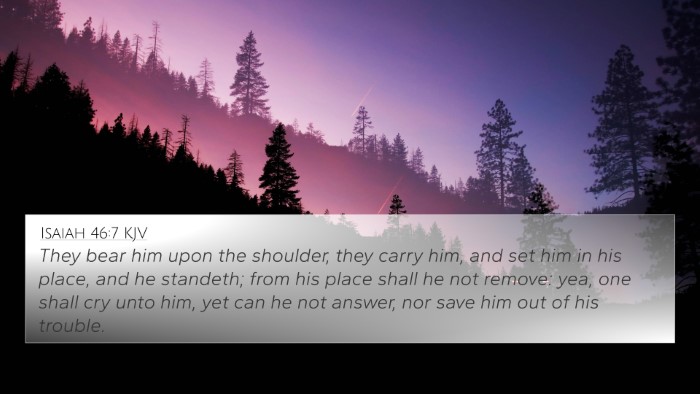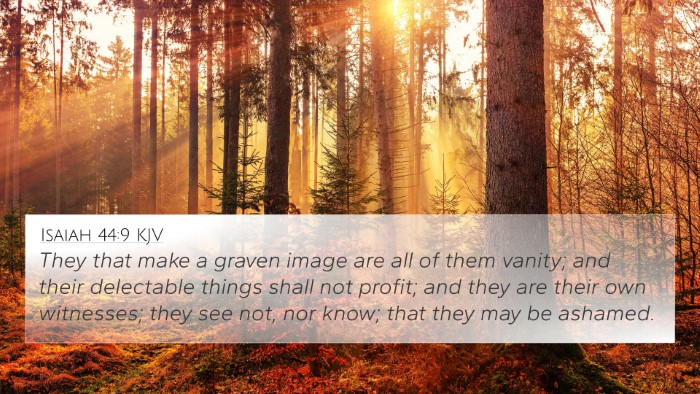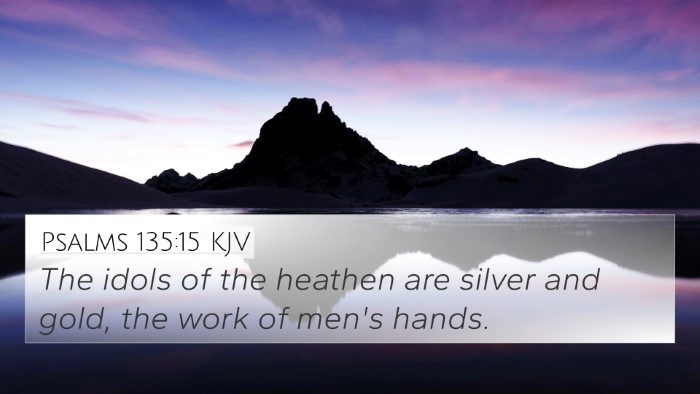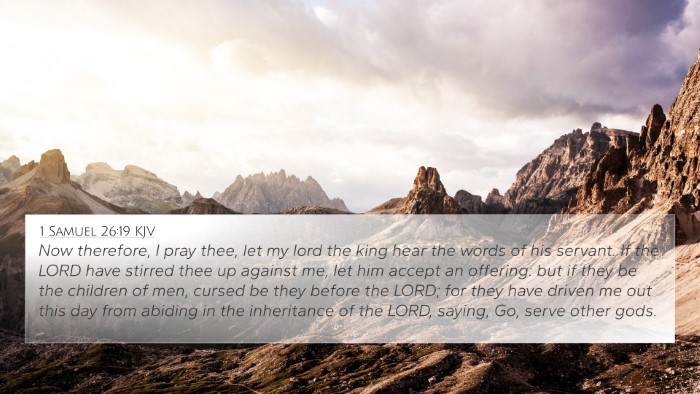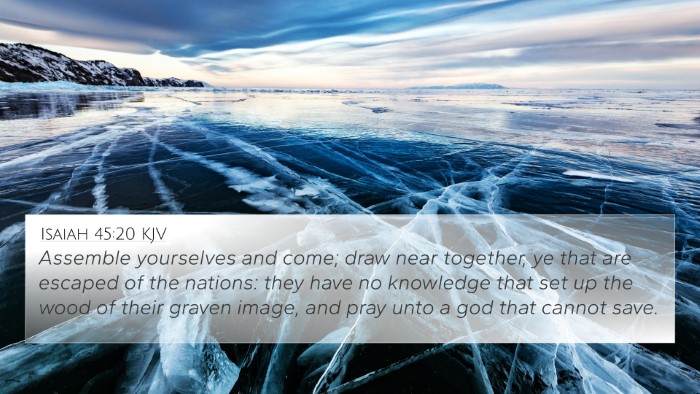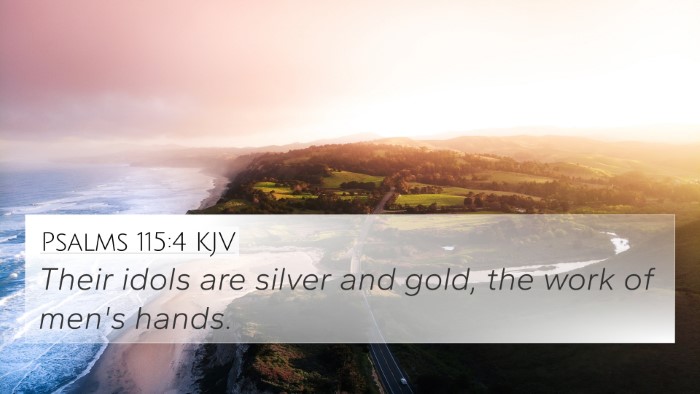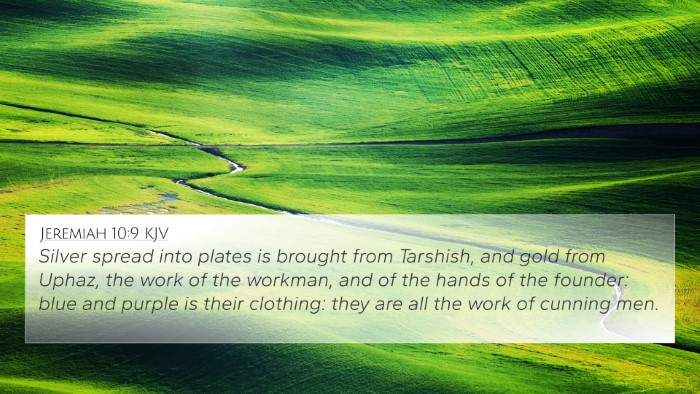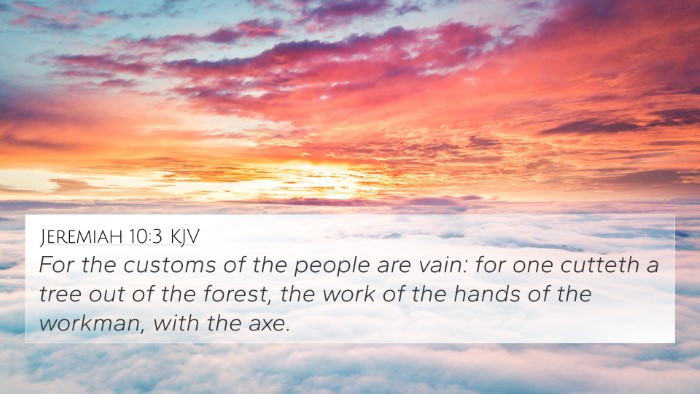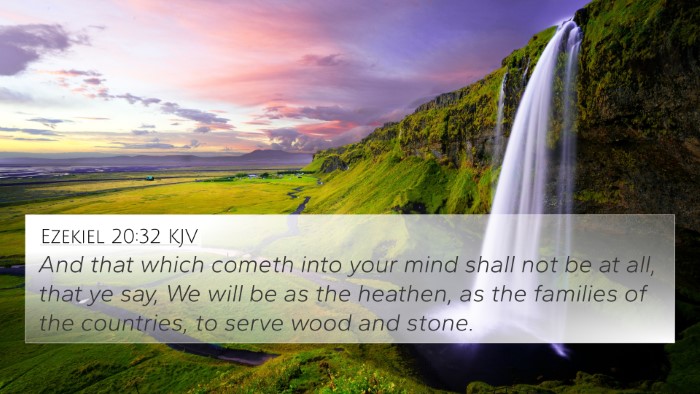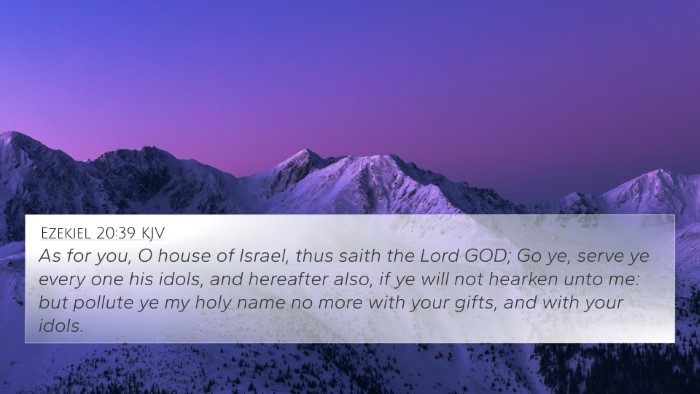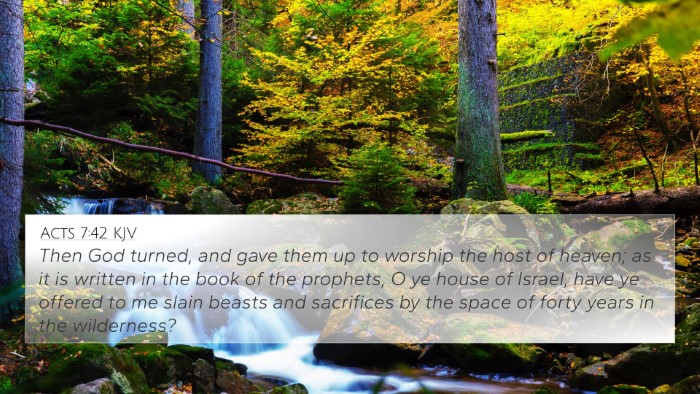Understanding Deuteronomy 4:28
Deuteronomy 4:28 states: "And there ye shall serve gods, the work of men’s hands, wood and stone, which neither see, nor hear, nor eat, nor smell." This verse addresses the temptation of the Israelites to worship idols when they are away from God's presence.
Verse Meaning and Interpretation
This verse reflects the warning given to the Israelites regarding idolatry. It highlights the futility of worshipping idols, which are mere creations of humanity that lack life and consciousness.
Commentary Insights
- Matthew Henry: Henry emphasizes that this verse serves as a caution against engaging in idolatry, noting that while man may create gods out of wood and stone, these idols are incapable of responding to human needs or desires.
- Albert Barnes: Barnes points out that this verse serves to contrast the living God with the lifeless idols, illustrating the hollowness of man-made deities. He notes that a true relationship is only possible with the Creator.
- Adam Clarke: Clarke further elaborates by contextualizing the historical background of the Israelites and their surroundings, explaining that the allure of idol worship was a constant threat, leading to spiritual decay and disobedience.
Cross-Referencing Biblical Texts
Deuteronomy 4:28 can be linked to various other scripture passages that discuss the themes of idolatry and the contrast between the Creator and created objects. Below are notable cross-references:
- Exodus 20:4-5 - Prohibition against making graven images.
- Psalm 115:4-7 - Describes the incapacity of idols compared to the living God.
- Isaiah 44:9-20 - A vivid depiction of the folly of idol-making.
- Jeremiah 10:3-5 - Similar denunciation of the worship of idols.
- Romans 1:22-23 - Discusses how humanity exchanged the glory of the immortal God for images resembling mortal man.
- 1 Corinthians 10:14 - Encouragement to flee from idolatry.
- 1 John 5:21 - An admonition to keep oneself from idols.
Thematic Connections
This verse also connects significantly with the broader biblical theme on idolatry:
- Human Efforts vs Divine Power: The emphasis on "the work of men’s hands" illustrates the limitations of human creations compared to God's omnipotence.
- The Nature of God: The verse presents an opportunity to reflect upon the nature of God, who is living and active, contrasted with lifeless idols.
Tools for Bible Cross-Referencing
Studying Deuteronomy 4:28 can be greatly enhanced through various cross-referencing tools:
- Bible Concordance: Use to locate specific words and phrases connected to idolatry.
- Bible Cross-Reference Guide: Guides can help indicate thematic relationships between verses.
- Cross-Reference Bible Study: Approaches that integrate multiple verses enrich understanding and provide broader context.
- Comprehensive Bible Cross-Reference Materials: Seek resources that analyze connections deeply for sermon preparation or personal study.
Identifying Connections Between Verses
Methods for effective cross-referencing can include:
- Using a Bible Concordance: To find related verses by keywords, aiding in cross-referencing efforts.
- Studying Thematic Groupings: By analyzing themes across both testaments, such as idolatry, faithfulness, and divine judgment.
- Reading in Context: Understanding the context of surrounding verses enriches comprehension.
Conclusion
Ultimately, Deuteronomy 4:28 serves as a vital reminder of the dangers of idolatry, encouraging believers to reflect on their relationship with God. By utilizing tools for Bible cross-referencing and recognizing connections between Bible verses, individuals can deepen their understanding of biblical truths and avoid the pitfalls of worshipping the created rather than the Creator.
